 Petzlover
Petzlover Chantilly/Tiffany is originated from United States but Chartreux is originated from France. Both Chantilly/Tiffany and Chartreux are having almost same weight. Both Chantilly/Tiffany and Chartreux has almost same life span. Both Chantilly/Tiffany and Chartreux has same litter size. Chantilly/Tiffany requires Low Maintenance. But Chartreux requires Moderate Maintenance
Chantilly/Tiffany is originated from United States but Chartreux is originated from France. Both Chantilly/Tiffany and Chartreux are having almost same weight. Both Chantilly/Tiffany and Chartreux has almost same life span. Both Chantilly/Tiffany and Chartreux has same litter size. Chantilly/Tiffany requires Low Maintenance. But Chartreux requires Moderate Maintenance
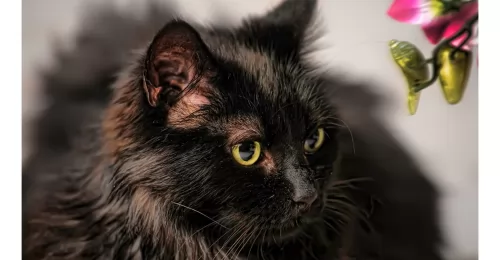 The beautiful Chantilly/Tiffany cat gets people thinking the cat is a semi-longhaired Burmese, but of course, it's not.
The beautiful Chantilly/Tiffany cat gets people thinking the cat is a semi-longhaired Burmese, but of course, it's not.
The way the Chantilly came about was that there were a pair of chocolate-colored cats but their origins were unknown. The first litter of Chantilly kittens was born in New York in 1969 and people were so taken up by the beautiful kittens that a breeding program was started.
The cat was first started as a foreign longhair and then it changed to Tiffany. In a British registry, a cat breed that was a cross between a Chinchilla Persian and a Burmese was named the Tiffanie and renamed Chantilly and referred to as the Chantilly/Tiffany.
The breed is recognized by most major cat registries.
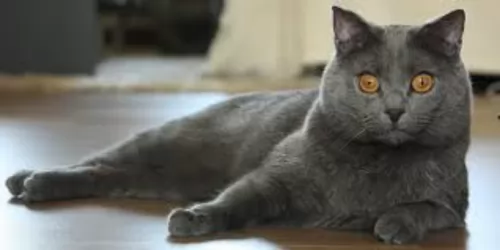 Hailing from France, the Chartreux cat is a rare cat breed but is still recognized by a number of cat registries around the world.
Hailing from France, the Chartreux cat is a rare cat breed but is still recognized by a number of cat registries around the world.
It’s not a new breed of cat, and in fact, the Chartreux is mentioned for the first time in 1558 in a poem and later on in paintings. There are quite a few legends as to the origins of the Chartreux and while some believe that the cats were brought to France by monks others believe that the Chartreux's ancestors were feral mountain cats from Syria.
European breeders kept the breed from extinction, especially after the 2nd world war, and the first Chartreux were brought to the United States in 1971. In 1987 the Cat Fancier’s Asociation advanced the Chartreux breed to championship status.
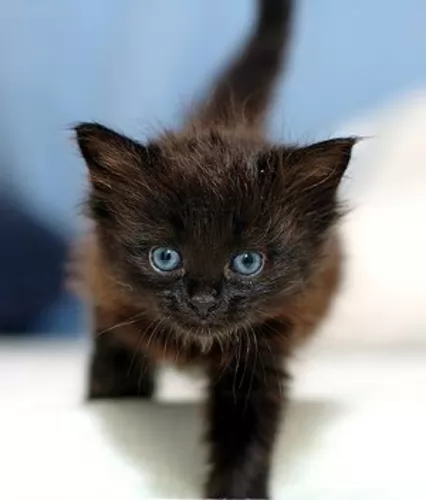 The cat has a fairly broad head with widely spaced ears of medium size. The eyes are oval-shaped and gold in color. The fur is semi-long and there is no undercoat. The tail is plumed.
The cat has a fairly broad head with widely spaced ears of medium size. The eyes are oval-shaped and gold in color. The fur is semi-long and there is no undercoat. The tail is plumed.
Apart from the original chocolate brown of the cat, other colors of the coat can include fawn, cinnamon, black, lilac and blue, with the chocolate brown being the favorite color.
The Chantilly promises to be a devoted and loyal feline companion for you, much preferring the company of his human family than to being alone.
It gets on well with other pets in the house as well as with respectful, gentle children. He isn't a demanding cat and he tries to talk with his family by chirping. It’s a balanced cat, with a fair share of docility and energy, making the cat an ideal companion for single people, couples, families, and elderly people.
It’s a cat that is so devoted, it will follow his human family around the house.
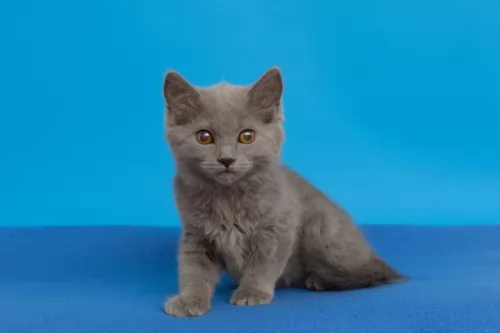 The Chartreux is a large, strong, stocky, muscular cat that can weigh anything between 4 to 7kg while some can weigh as much as 9kg.
The Chartreux is a large, strong, stocky, muscular cat that can weigh anything between 4 to 7kg while some can weigh as much as 9kg.
He has short legs when compared to the large body. He is known for his blue-like, silver-gray coat. In fact, the color can be any shade in the region of blue-grey. The coat is short, dense and double-coated and he has gold or copper-colored eyes.
People who have owned these cats say that they can take 3 to 4 years to reach maturity. Some people get mixed up and think this cat is very similar to the British Blue but they are two different breeds altogether.
The Chartreux is a real lap-cat just loving being able to settle down into his human owner's lap. It’s a cat with a 'smiling’ face because of the structure of his muzzle.
He is a very affectionate cat and will follow his people much like a dog. He is very intelligent and quiet and adapts well to a new situation. It's a cat that loves to climb so you will need to invest in a climbing tree for him as well as a scratching pole.
He is a good cat for first-time cat owners as well as being a good friend in homes with well brought up children. He is able to be friendly with other pets in the house.
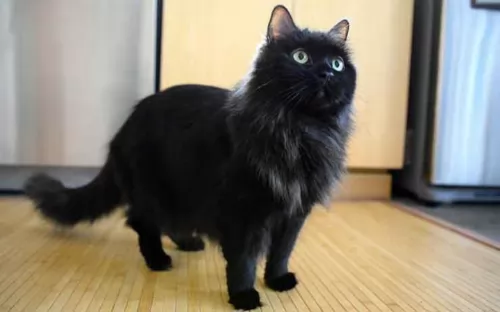 The Chantilly/Tiffany is a gentle and kind breed that is playful and easy-going. They are just your typical middle-of-the-road cats that are not too much or too little of anything.
The Chantilly/Tiffany is a gentle and kind breed that is playful and easy-going. They are just your typical middle-of-the-road cats that are not too much or too little of anything.
The Tiffany is playful, docile, happy and content and he wants to be your friend and companion.
If you are looking for a breed of cat that is loyal to its human family, allow this cat into your home... you won't have any regrets.
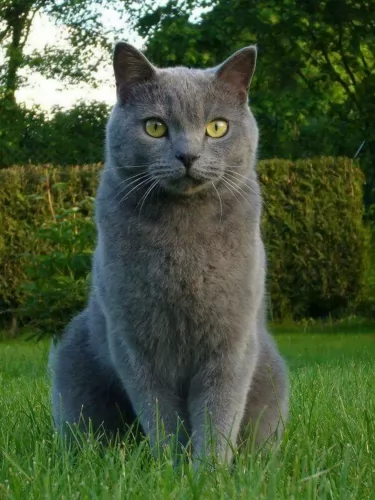 Although this is a large, strong cat, he is actually a gentle feline in nature and he doesn’t like being part of any bickering among his human family, preferring to run away. He also doesn’t like being spoken harshly to when he has done something wrong.
Although this is a large, strong cat, he is actually a gentle feline in nature and he doesn’t like being part of any bickering among his human family, preferring to run away. He also doesn’t like being spoken harshly to when he has done something wrong.
This cat isn’t an extrovert by any means but he isn’t particularly shy either and enjoys spending time with his human family.
He isn’t a demanding cat but is easy-going, just wanting to get on in life and he promises to make you a steady, loyal companion.
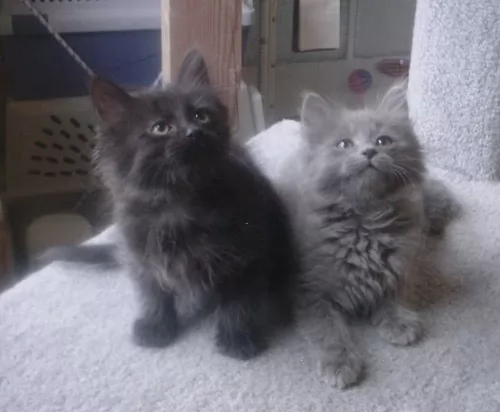 There is no health issue that the Tiffany is prone to. Like any cat, a healthy diet will keep the Tiffany healthy for years.
There is no health issue that the Tiffany is prone to. Like any cat, a healthy diet will keep the Tiffany healthy for years.
These cats are known to have delicate digestive systems so avoid foods with grain if possible. The Tiffany has full hair in their ears, and wax build-up can occur so the inside of his ears must be checked. Checking the ears once a week, as part of a regular routine that includes brushing, and tooth care, should be sufficient to keep the ear canals clear.
Other issues, which are not detrimental but should be kept in mind, are reports that the Tiffany has delicate digestion. This cat relies on a regular diet that doesn't chop and change often.
Because the Tiffany is a low-shedding cat, it is thought to be a popular breed with those people who are allergic to cat hair.
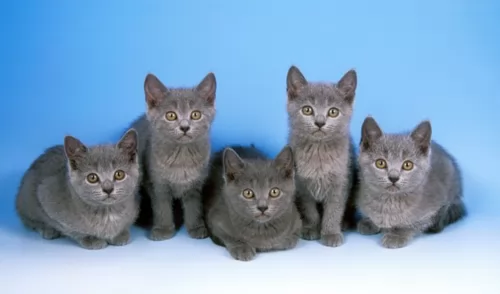 These cats are particularly prone to dental problems. The reason for this is that their incisors are closely set together and small.
These cats are particularly prone to dental problems. The reason for this is that their incisors are closely set together and small.
Because of the heaviness of this cat, the Chartreux is also prone to a disease known as patellar luxation or kneecap displacement. This problem can eventually lead to lameness. One way to avoid this particular problem is to rather get your kittens from reputable breeders.
These cats are much inclined towards weightiness so you have to be watching his diet carefully, more so because the cat is prone to patellar luxation.
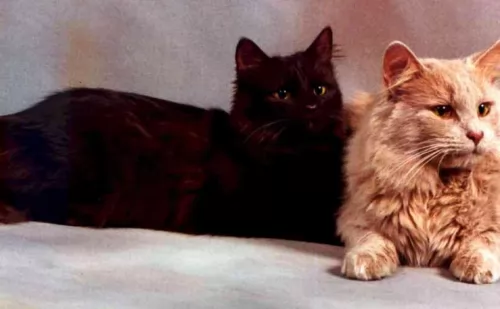 The Chantilly needs an excellet diet and exercise to ensure he doesn’t become to overweght. Remember that cats are carnivores, and this means they have nutritional requirements that can only be met with meat – they can never do well on a diet high in carbohydrates and will develop digestive problems. Your cat will also require clean, fresh water aroud thd clock to ensure his good health.
The Chantilly needs an excellet diet and exercise to ensure he doesn’t become to overweght. Remember that cats are carnivores, and this means they have nutritional requirements that can only be met with meat – they can never do well on a diet high in carbohydrates and will develop digestive problems. Your cat will also require clean, fresh water aroud thd clock to ensure his good health.
Ensure each cat you have has a litter box andencourae good litter box habits by cleaning th litter box every day. Keeping the litter box clean also alerts you anything unusual with your cat’s toilet habits.
Provide your cat with a scratching post and a climbing tree.
The cat doesn’t have an undercoat and is therefore easy to groom. With his semi-long hair, you can brush him once a week to keep the coat soft and shiny. The coat is also low shedding.
Check inside his ears and inside his mouth to ensure there is no redness and signs of infection.
Schedule regular vet visits for your cat for his cat vaccines and for when he is sick.
Spay or neuter your cat to prevent unwanted kittens. Spaying and neutering prevents uterine infections and certain cancers in the felines.
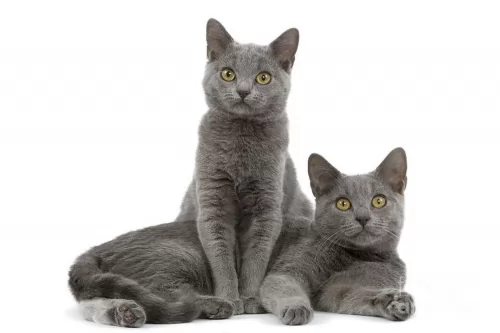 Your Chartreux cat’s dense, double coat will require brushing once or twice a week, especially in the cat’s seasonal shedding period.
Your Chartreux cat’s dense, double coat will require brushing once or twice a week, especially in the cat’s seasonal shedding period.
This cat doesn't take well to changes in his diet, particularly when he finds a type of food that he likes, then he wants to stick to that. You want to feed your cat a top-quality food to encourage good health but you want to avoid overfeeding as obesity in cats comes with lots of problems. A cat is a carnivore and you therefore need to feed your cat a diet rich in protein. Speak to your vet or another cat expert who can advise you on feeding your cat if you are in any kind of doubt. Make sure your kitty kat has a never-ending supply of fresh, cool water.
Always make a point of checking inside your cat's ears as well as inside his mouth for bad teeth. Bad teeth can cause terrible pain and your pet has no way of communicating this to you.
Have your cat neutered or spayed if you don't want your cat to have kittens.